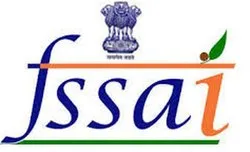FSSAI Registration Made Easy: Your Guide to Compliance and Growth

In the ever-expanding food industry, ensuring food safety and quality isn't just a legal requirement—it’s a key driver of trust and growth. FSSAI registration plays a vital role in maintaining these standards. If you're running a food business, understanding the ins and outs of FSSAI registration, verification, and compliance is crucial. This guide breaks down the process to help you achieve seamless compliance while setting your business up for success.
What is FSSAI Registration?
The Food Safety and Standards Authority of India (FSSAI) is the governing body responsible for regulating food safety and hygiene. FSSAI registration or an FSSAI license is mandatory for every food business operator (FBO) in India. This registration ensures that the food being produced, stored, distributed, or sold complies with the legal safety standards set by the authority.
Types of FSSAI Licenses
Before diving into the registration process, it’s important to understand the types of FSSAI licenses available:
- Basic FSSAI Registration: For small businesses or startups with an annual turnover of less than Rs. 12 lakhs.
- State FSSAI License: For medium-sized businesses with an annual turnover of between Rs. 12 lakhs and Rs. 20 crores.
- Central FSSAI License: For larger businesses with an annual turnover of over Rs. 20 crores or those involved in imports and exports.
Why is FSSAI Registration Important?
FSSAI registration is not just a formality; it comes with numerous benefits for your food business:
- Legal Compliance: Avoid hefty penalties and ensure your business is legally protected.
- Consumer Trust: Boost customer confidence by showcasing your commitment to food safety.
- Business Growth: Easier market access and opportunities for expansion.
The FSSAI Registration Process
To simplify the FSSAI registration process, follow these steps:
1. Determine the License Type
Identify whether your business needs basic FSSAI registration, a state license, or a central license based on your turnover and scale of operations.
2. Prepare the Required Documents
Ensure you have the following documents ready:
- Completed application form
- Address proof and ID proof of the owner
- Proof of business premises
- Food product details
- Authority letter (if applicable)
3. Submit Your Application
Submit the application online via the FSSAI portal. Ensure all details are accurate and supported by the necessary documents.
4. FSSAI Verification
After submission, the authorities will conduct FSSAI verification. This step involves:
- Reviewing the documents for accuracy
- Inspecting the food premises, if required
- Issuing the FSSAI license or registration certificate upon approval
5. Renew Your License
FSSAI licenses are valid for a period ranging from 1 to 5 years. Renewal is essential before the expiration date to maintain compliance.
Tips for Hassle-Free FSSAI Compliance
Here are some tips to ensure a smooth FSSAI registration and compliance process:
- Stay Updated: Keep track of any updates or amendments in FSSAI regulations.
- Maintain Records: Ensure proper documentation and record-keeping for audits and inspections.
- Hire Professionals: Consult experts to avoid errors during registration or renewal.
Conclusion
Securing your FSSAI registration or license is a cornerstone of building a trustworthy and compliant food business. By understanding the process and adhering to guidelines, you not only protect your business from legal hurdles but also open doors to growth and consumer trust. Don't overlook the importance of FSSAI verification, as it solidifies your commitment to quality and safety.
Take the first step towards compliance today and watch your food business thrive!